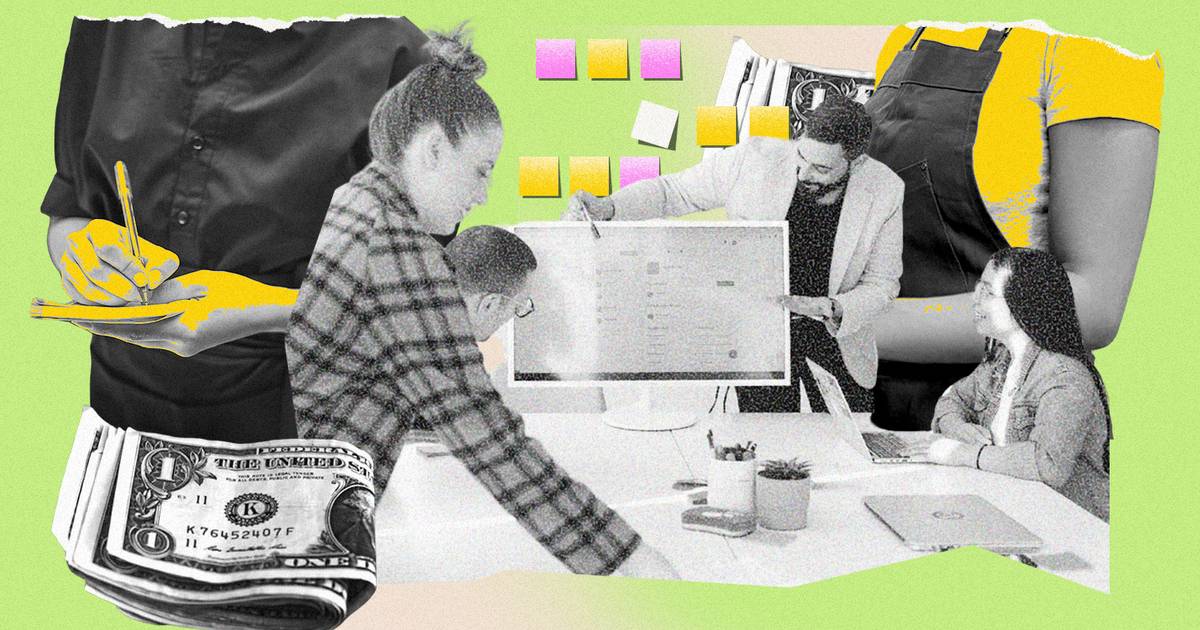
As a high school junior, Kendyl Skinner worked as a hostess at Texas Roadhouse. It was a fast-paced environment, and she was struggling with undiagnosed ADHD.
But working in the hustle and bustle of the service industry actually helped Skinner learn to manage her ADHD symptoms, she told HR Brew. The constant stimulation and hands-on work associated with being a hostess played to her strengths and, eventually, helped her segue into HR, a field where, like hostessing, there are a lot of moving parts.
“The job that I was doing at the time actually suited me so well because there was so much multitasking…it was never boring,” said Skinner, now head of HR at Columbus-based advertising company Orange Barrel Media. She shared with HR Brew how these multitasking skills helped her HR career.
This interview has been edited for length and clarity.
How did your first job help you in HR?
When I went to college and I got my degree in strategic communication, I didn’t really intend on going towards HR from the start. But my job just adapted into that direction, and I think because I do have ADHD and because environments I’ve worked in have been not-so structured…it allows me to focus on a lot of different areas of things and jump around…which helps keep my brain very stimulated. On the flip side of that…when it comes down to really sitting down, and looking at the details, and completing a project or getting into the nitty gritty of something, that’s where I really struggle. So, I really try to have people on my team who are not like me…and enjoy that detail [or] project completion…because I know that is where I struggle.
How can other HR pros support people’s differences?
It took me a long time to find a path and find something that I would thrive in and do really well in, and once I did do that, and I found out that I had ADHD and I got medicated, [it] was a huge, huge difference. When I started leaning into the things that I was actually really good at, and not trying to conform or adapt to different ways of working, I did so much better. And people started to appreciate and recognize what my strengths were…and then [I’d] help supplement with my team members to help with the things I’m not as good at.
Quick-to-read HR news & insights
From recruiting and retention to company culture and the latest in HR tech, HR Brew delivers up-to-date industry news and tips to help HR pros stay nimble in today’s fast-changing business environment.
Within different teams, you have [a sense of] those different capabilities for people and it’s so much better if you can identify them within your own teams and then play into people’s strengths. And let them really identify them and then move forward with them, and they’re going to do so much better. And, you’re going to be so much stronger as a team if you have all the different things. You can recognize, this person is great with detail, this person not so much, but [they’re] great with client relationships…Once you figure that out, and start pushing your team members into the things that they’re good at…They feel like they’re growing or learning, and everybody just feels better.
What advice regarding neurodiversity do you have for HR leaders?
It’s really important to remember that just because you respond, or react, or are thinking about things one way, that’s not how most people probably are going to react or think about a situation…You’re doing people a disservice if you try to apply your own way of thinking or a way of feeling onto them, and it’s so much better if you can get to know people as individuals, and then you know how to share messages with them, you can better respond to how you think they’re going to react to things…[It] gives you such a better working relationship that makes it easier to share feedback. It’s easier to have conversations about things. You can sort of predict how people will react and respond, because you’ve seen them do it and you’ve given them the space to feel the things that they feel in a way that’s authentic to them as individuals. Because that’s what we all are. We’re all equal in the workplace.
